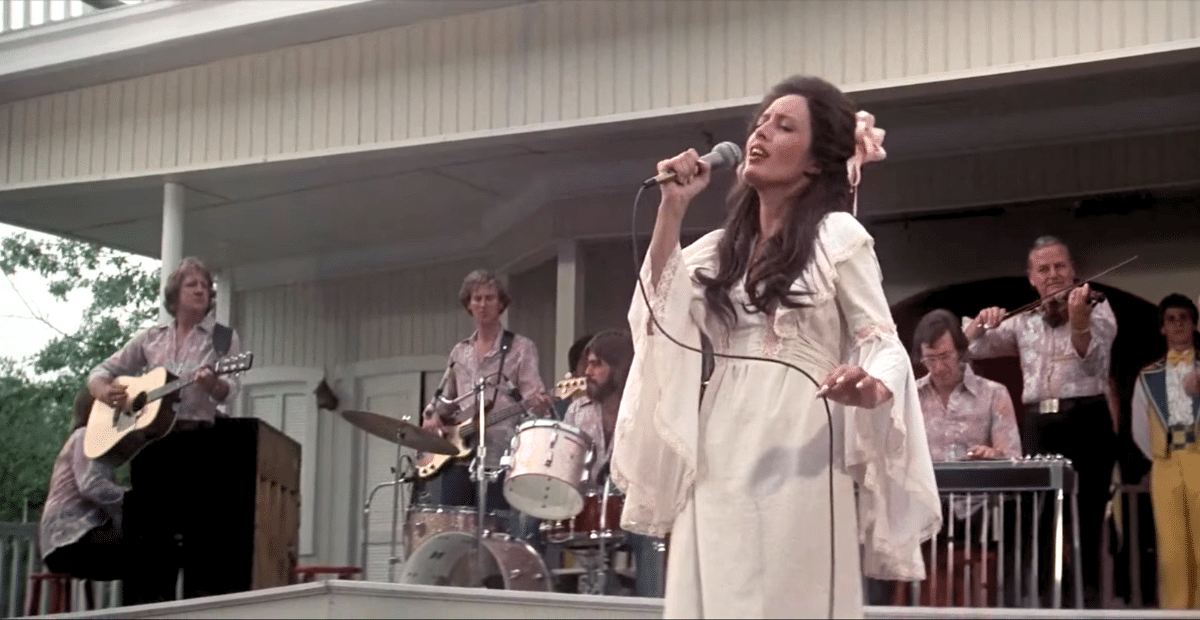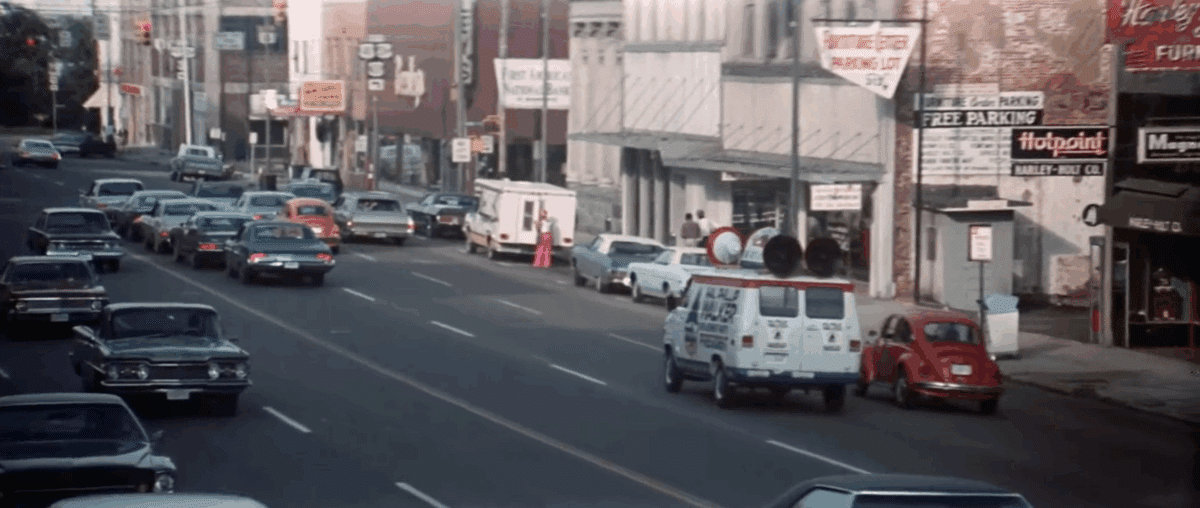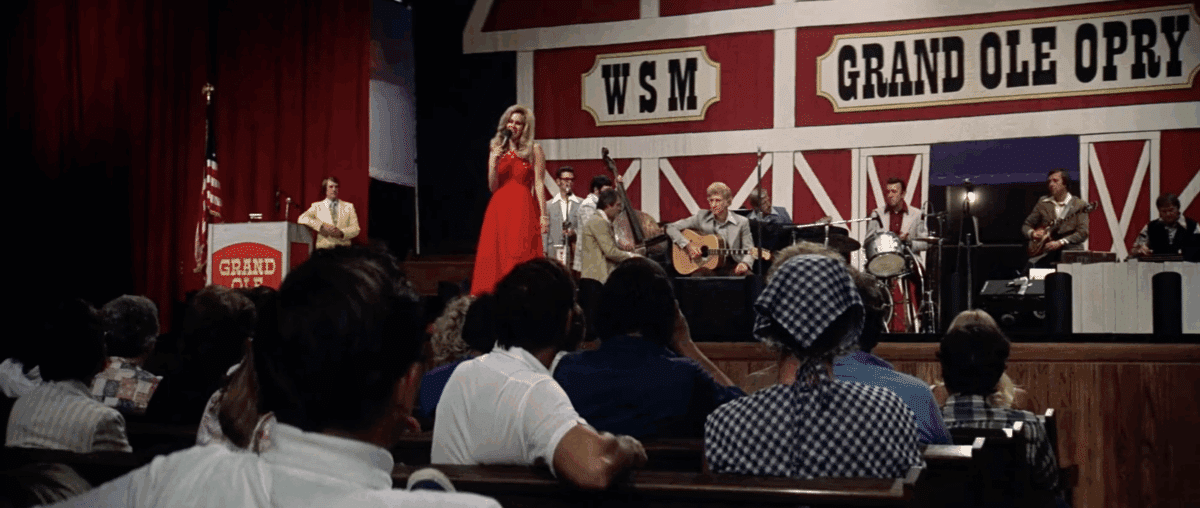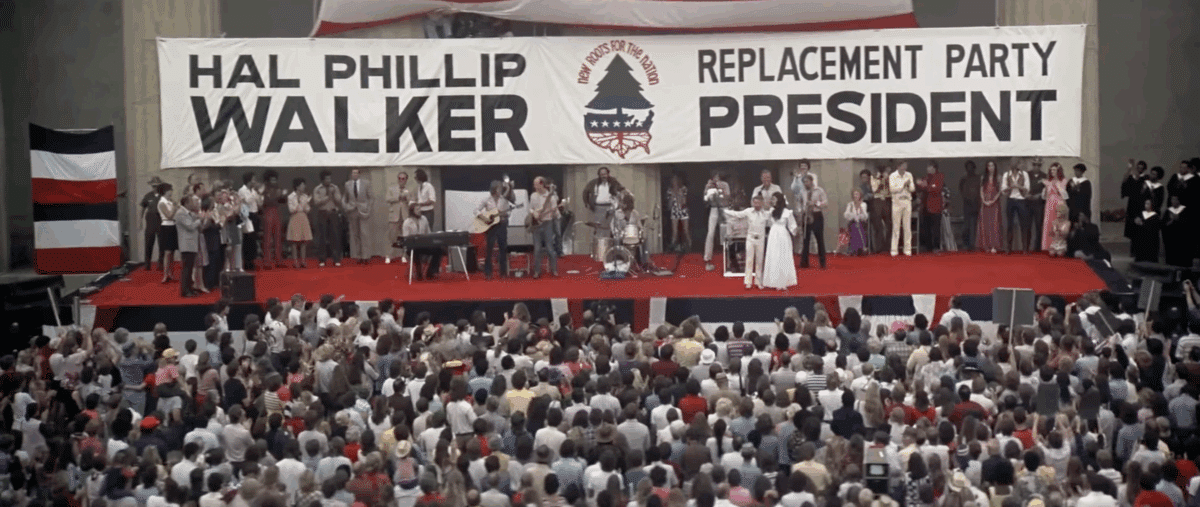Robert Altman’s Country Music Film, ‘Nashville,’ Was Released 50 Years Ago
on Jun 11, 2025

Celebrated Film Was Met With Skepticism By Heart Of Country Music
50 years ago, Hollywood came to Nashville, and brought “Music City” to the world.
Released on June 11, 1975, Robert Altman’s sprawling ensemble film Nashville (1975) dramatizes the country music scene of the 1970s … or does it?
That was the question many in the film’s titular city had upon its release, with many concerned it would be “a put-down” of country music and the South as a whole.
Among the country stars who attended the film’s premiere in Nashville, country star Ronnie Milsap, who is blind, said, “I’ve seen a lot of movies in my day, and this is one of them.”
Going further, Jeanne Pruett said, “I thought it was hokey from start to finish.”
Roy Acuff, the “King of Country Music” himself, was in attendance at the premiere, but left before the film started, opting to perform at the Grand Ole Opry instead.
On the other hand, the film was nominated for 11 Golden Globes and five Academy Awards, winning Best Original Song at both, for Keith Carradine’s “I’m Easy.” Nashville was also voted the best film of 1975 by the National Board of Review and New York Film Critics Circle, and was later preserved by the National Film Preservation Board of the Library of Congress in 1992.
Today, it remains one of the most revered works of the New Hollywood era of the 1970s.
A Time Capsule Of Nashville
For those who have recently visited Tennessee’s capital city, seeing a film like Altman’s Nashville can be a bit shocking.
Back then, streets like Broadway were — by comparison to today — bare, and largely undeveloped.
Shot in the summer of 1974, the film’s director famously said of the city, as quoted in Jan Stuart’s book Nashville Chronicles, that he “couldn’t find it.”

In this Music City drama, featuring 24 main characters, it’s the city that holds the film’s story together, as well as the era.
Places such as the Nashville Metropolitan Airport (now known as the Nashville International Airport), Interstate 40, and the Parthenon replica in Centennial Park all serve the dramatic purpose of keeping the film’s two-dozen characters connected.
Even the Grand Ole Opry, and the now defunct Opryland USA theme park, are featured prominently — preserved as they were by this film that was released in 1975.

In the June 6, 1975, edition of The Tennessean, Altman said the following of the city Nashville:
“It’s not even just a place — it’s a state of mind, just in the way Hollywood was. It’s the place where the kids get to off the buses and hope to make their fortunes. The quickest way to make it now, to be a superstar, is in the music business.”
That, in short, is the story of Nashville.
There are established country stars within the fiction of the film, such as Barbara Jean (who is modeled after Loretta Lynn), played by singer-songwriter Ronee Blakley; and Connie White (a composite of Lynn Anderson, Dolly Parton, and Tammy Wynette), portrayed by Karen Black.
Then there are those who aspire for country music greatness, with some having great talent (like the character played by Barbara Harris), while others are hopelessly delusional (as played by Shelley Duvall and Gwen Welles).
“A Metaphor For America”
Set over five days in 1975, Altman set out to capture not only the country music scene, but America on the precipice of its bicentennial.
“We must be doing something right to last 200 years,” sings Haven Hamilton, played by Henry Gibson, in the opening of the film.
With the 1976 celebration of 200 years of America just around the corner, the film also anticipates the 1976 presidential election. Over the course of the film, a painted campaign van goes throughout the city of Nashville, playing a recording of a speech by a fictitious third-party politician, named Hal Phillip Walker.
We never see Hal Phillip Walker, who is running for president as part of the “Replacement Party,” but we hear his words, and the film’s finale takes place at the Parthenon in Centennial Park where a presidential rally for the unseen candidate is to be held.
It was no secret for viewers of the film in Nashville that the film’s conclusion was marked by an assassination, as Altman and his crew solicited in newspapers, like The Tennessean, for thousands to show up at the Parthenon to serve as extras at the film’s climax.
This assassination, which sees one of the film’s country stars killed, is heart-wrenchingly inevitable in a film that is continuously building up — but building up to what?
With blood spattered on his white Western attire, Haven Hamilton stands up and takes the microphone, telling the crowd, “Y’all, take it easy now. This isn’t Dallas, this is Nashville. This is Nashville, you show ‘em what we’re made of. They can’t do this to us here in Nashville.”
Thousands of Nashville-locals did show up to fill the crowd, and the scene feels just as prescient today as it did then.
Working with ideas as polarizing and disparate as the Vietnam War, the Kennedy assassination, and the Watergate scandal, Nashville is a product of the mid-‘70s. Still, that it speaks to America’s past glory and future promise is what has kept the film’s flame burning “hot as a firecracker” over the past five decades.
Watch the trailer for Nashville, here:
‘Nashville’ Has Its Music City Premiere
Before the film premiered anywhere, the maverick film critic Pauline Kael, of The New Yorker, had been granted an exclusive screening of the film, and she wrote in her review:
“The picture is at once a ‘Grand Hotel’-style narrative, with twenty-four linked characters; a country-and-Western musical; a documentary essay on Nashville and American life; a meditation on the love affair between performers and audiences; and an Altman party.”
She concluded her review, writing, “‘Nashville’ is the funniest epic vision of America ever to reach the screen.”
Beyond that, and the praise she heaped upon the film, Music City was nervous ahead of the film’s release.
Newspapers, like The Nashville Banner, held that the film “portrays Southern lifestyles in less than complimentary tones,” contributing to the rumored “put-down” of the city of Nashville and its stars.
Responding to such criticism, Altman told The Tennessean on June 6, 1975, “It is not a put-down. I have the greatest respect for Nashville and its music. If it’s a put-down of anything, it’s of me and my idea of what has happened to this country.”
Regardless, the film opened in New York City on June 11, 1975, and it slowly inched its way toward a theatrical premiere in the city it’s set in.

On August 8, 1975, the film had its Nashville premiere at the Martin Theatre at the 100 Oaks Shopping Center, with The Tennessean reporting:
“There were spotlights, limousines, blaring bands and a gaggle of photographers. A country group, the Silver Spurs, provide an appropriate sound. The Rutherford County Square Dancers did their number and doll-sized Tennessee Twirlers, who also appeared in one of the early scenes in the movie, exhibited their skills.”
Further, The Tennessean noted that half the audience in attendance was “from the ranks of Country Music stars and executives,” all of whom were invited to the premiere.
After the screening, many country figures gave comment to the press on Altman’s film, with Minnie Pearl saying, “I’m just too close to it. Part of it made me very sad, but sometimes I laughed so hard it hurt. I just couldn’t say whether I could recommend it or not.”
Country singer Dottie West was complimentary of the film as well, still noting, “It is a bit exaggerated.”
Continuing, West said, “I particularly like the girl singer [played by Ronee Blakley]. She really is Loretta!”
Jo Walker-Meador, then executive director of the Country Music Association (CMA), said, “I was pleasantly surprised. There was a little exaggeration, but from what I had read, I was prepared for much worse.”
Of the film, she added, “It’s not bad for country music or Nashville.”
However, Jeanne Pruett said, according to the Associated Press, “I can see how they might like it in New York. They think we’re a bunch of hayseeds to begin with. Robert Altman spells Nashville the same way I do, and that’s the only connection between his view of it and mine.”
Ronnie Milsap said, “Musically, I thought it was disappointing. It did not speak at all about what country music is all about. It certainly wasn’t the Nashville sound I know.”
Listen to the film’s Oscar-winning song, Keith Carradine’s “I’m Easy,” here:
Nashville may be rented on Fandango At Home, or purchased on DVD and Blu-Ray from the Criterion Collection.













